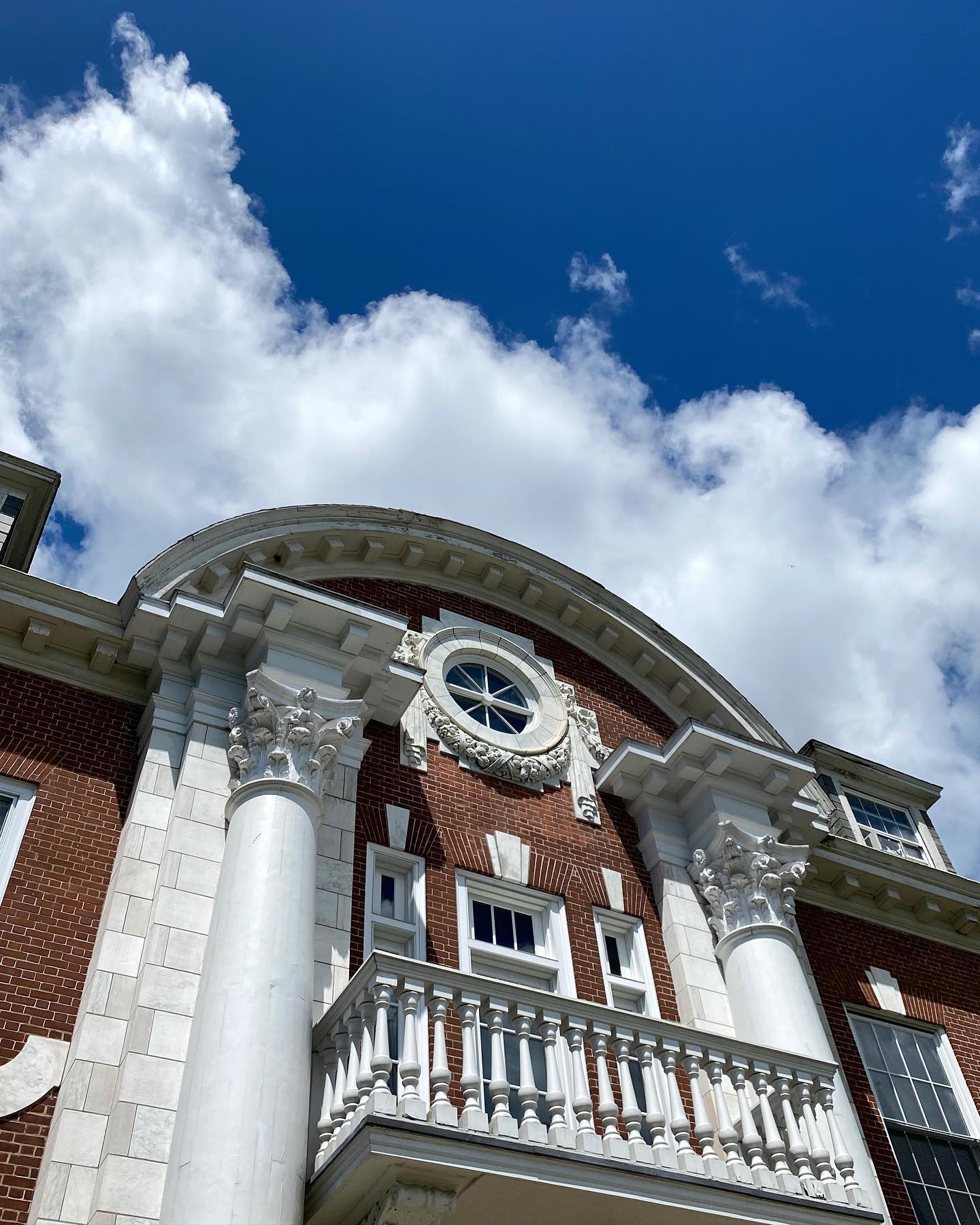Conference of the Society of Community Research and Action (SCRA) Presentations
2025
Contextual Protective Factors for Adverse Childhood Experiences (ACEs): Potential Avenues for Intervention
Melissa L. Whitson, PhD & Robyn K. Moran, BS
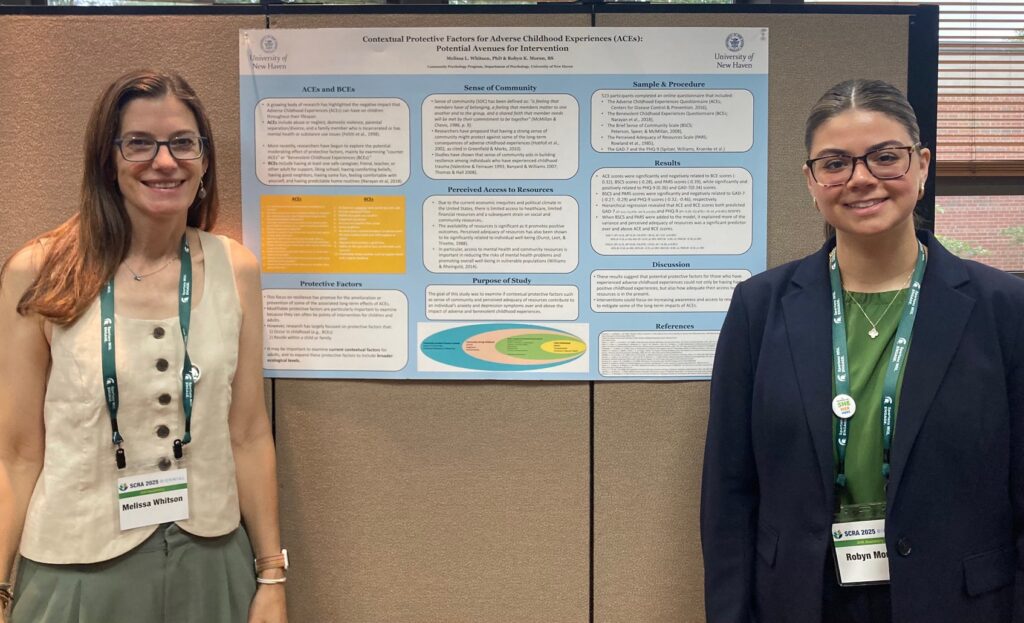
A Passion for Teaching Amidst COVID-19: University Faculty Well-Being Participatory Action Research
Robyn K. Moran, BS, Bethany Konel, BA, & Melissa L. Whitson, PhD
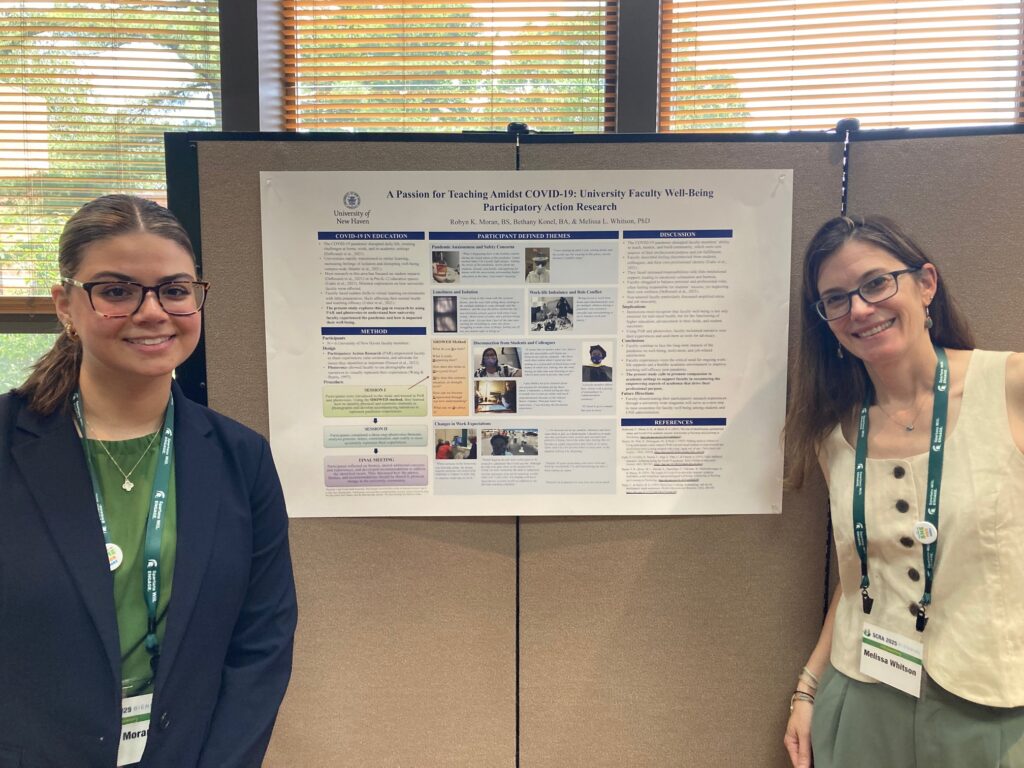
Transforming Youth Justice Through Professional and Leadership Development: A Process Evaluation
Eva Ott Hill, BA & Robyn K. Moran, BS
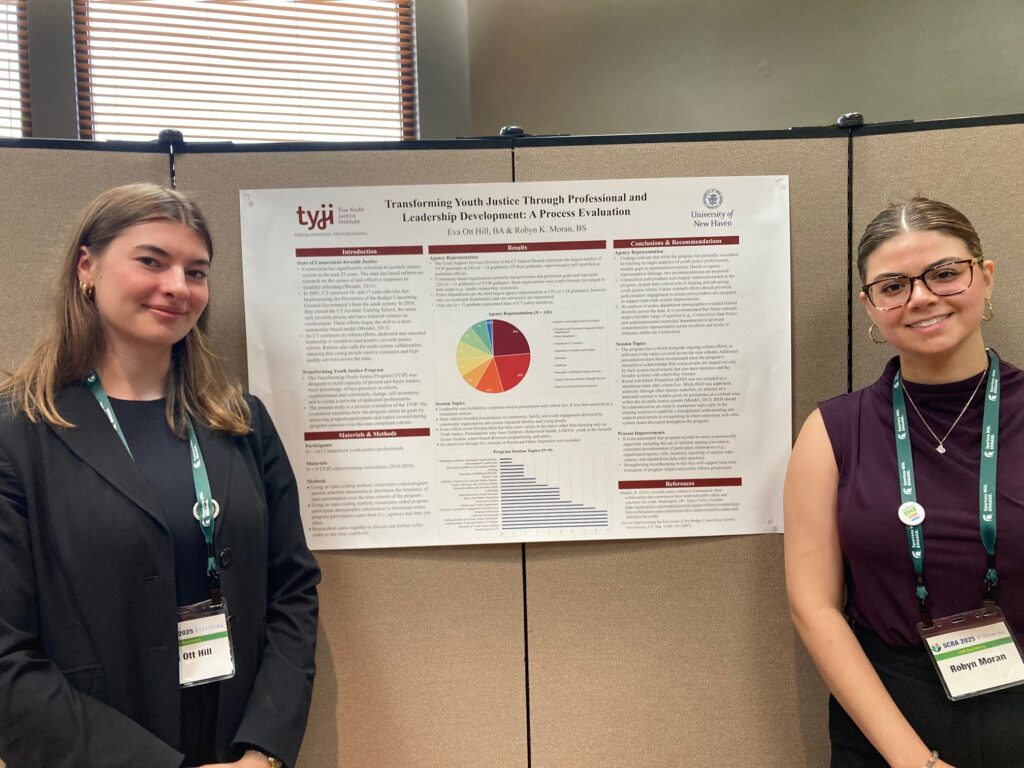
2023
Building trauma-informed support networks to promote wellness in correctional communities: A narrative review of combining Crisis Intervention Teams (CITs) and peer-facilitated Interventions in prisons
Lily Hoerner .
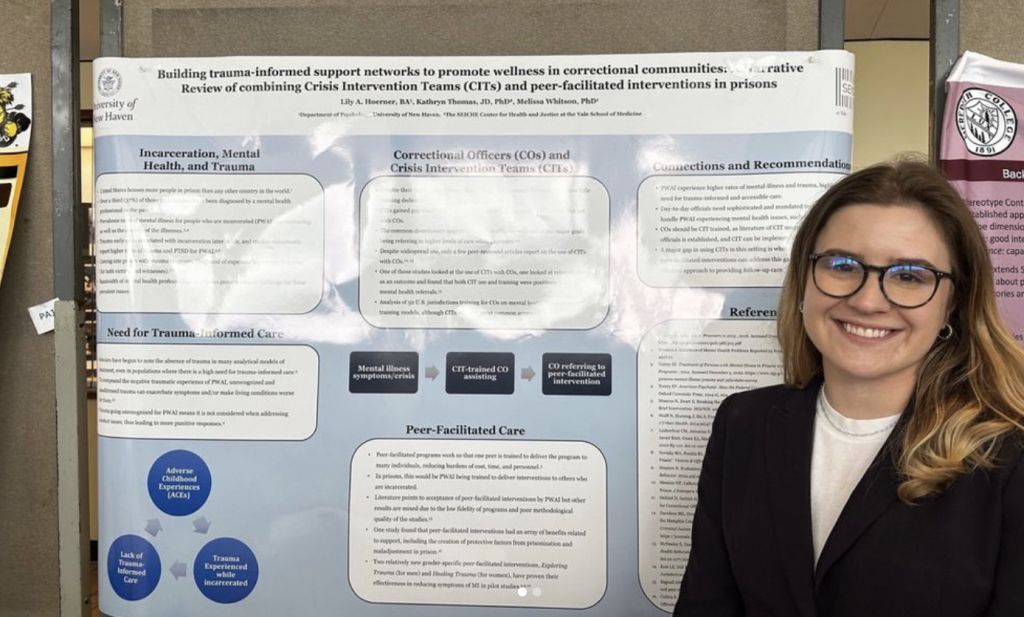
Cultural Considerations for Fatality Reviews and Intimate Partner Homicide Prevention
Krista Grajo (Alumnus) & Dr. Macias
Trauma-Informed Listening Sessions and Photovoice with Marginalized Communities: Applications for Community Practice
Azza Jussein (Alumnus) & Dr. Macias
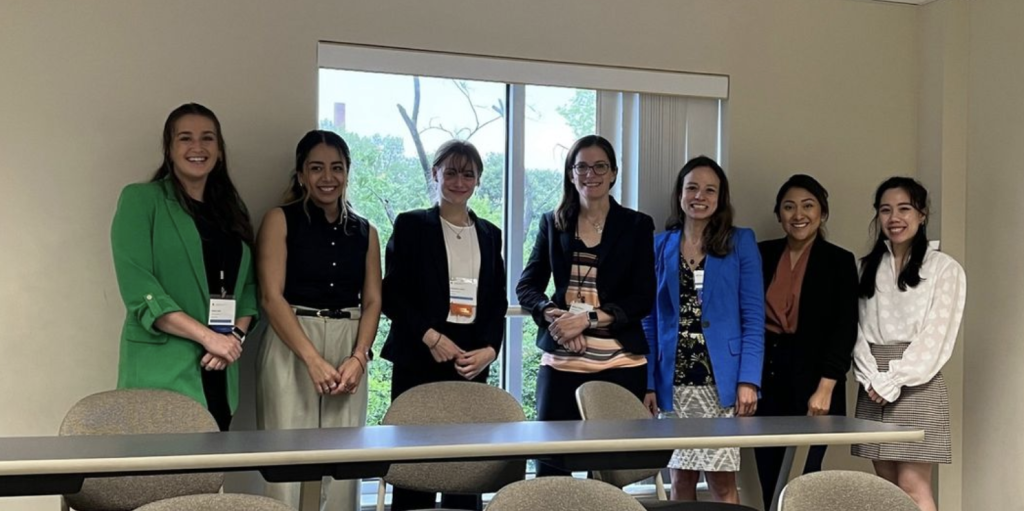
Fostering Restorative Practice and Programs for Men in the Field of Gender-based Violence
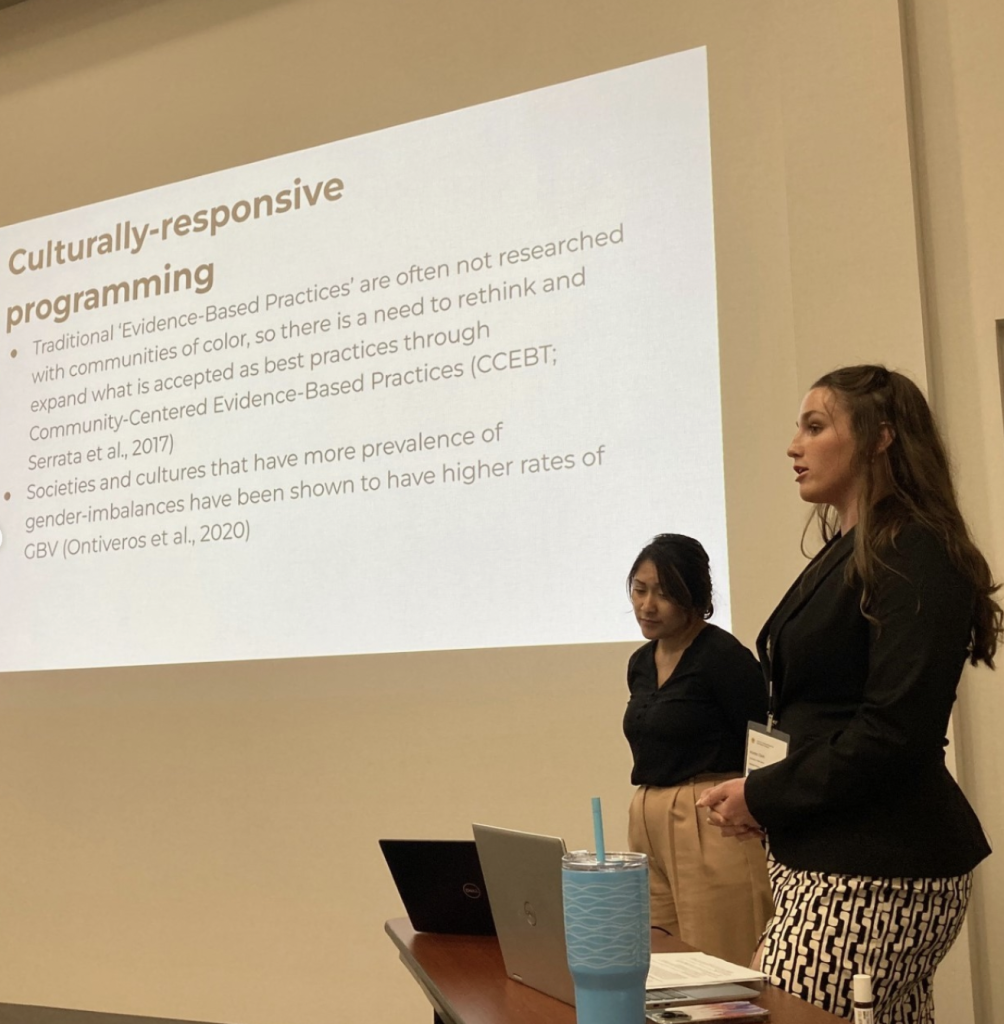
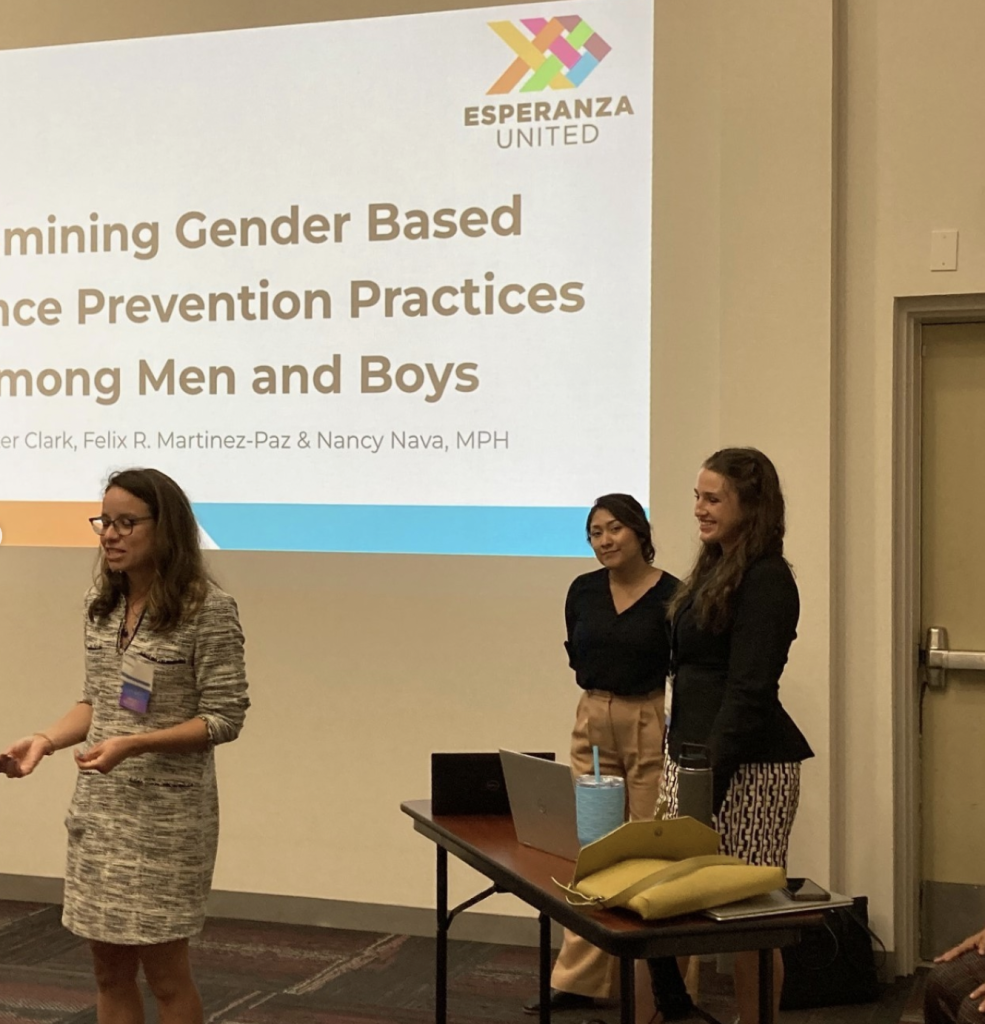
Examining Gender-based Violence through the Lens of Disability Justice
Julia LeFrancois, Dr. Macias, Mary Lippa
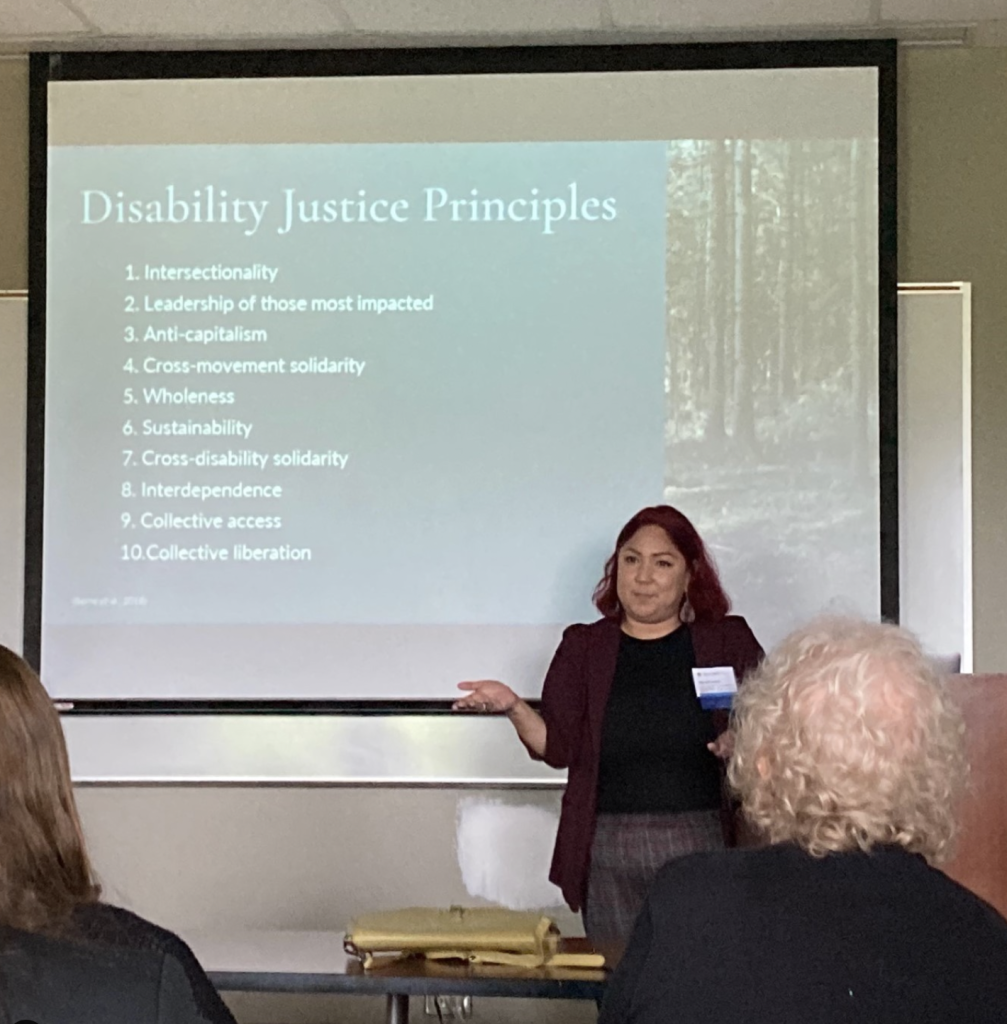
Community-Based Intervention Mitigating Malnutrition in Elder Care Facilities
Julia Guarniere
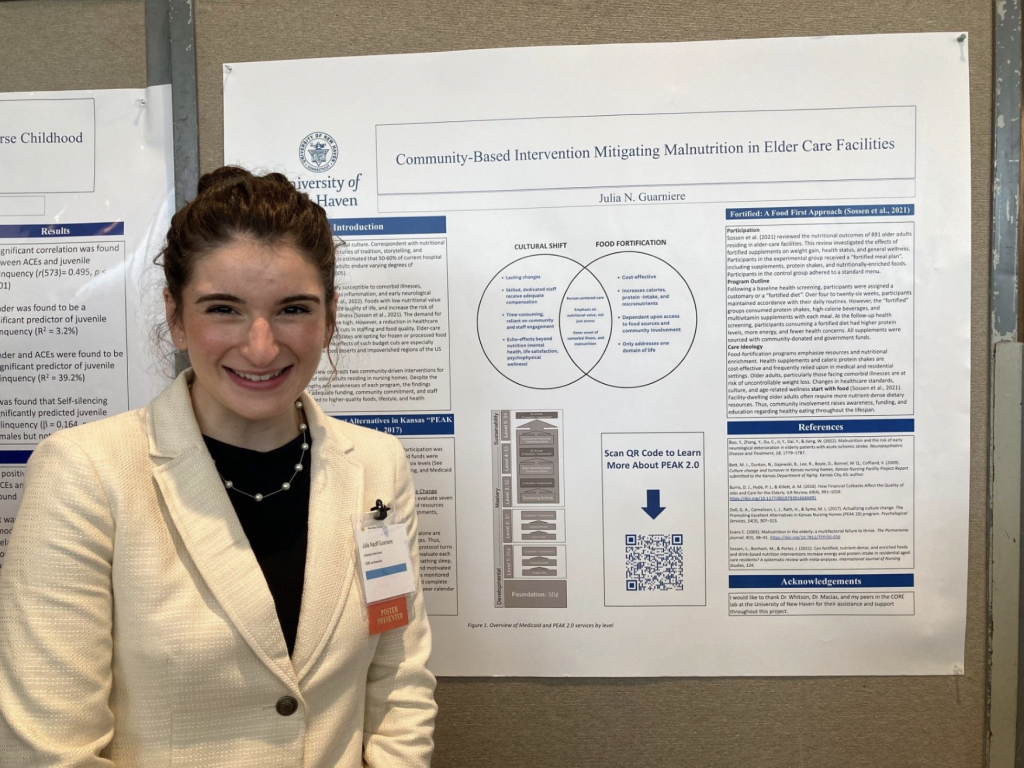
The Role of Gender and Self-Silencing in the Relationship between Adverse Childhood Experiences and Juvenile Delinquency
Cassie Landry
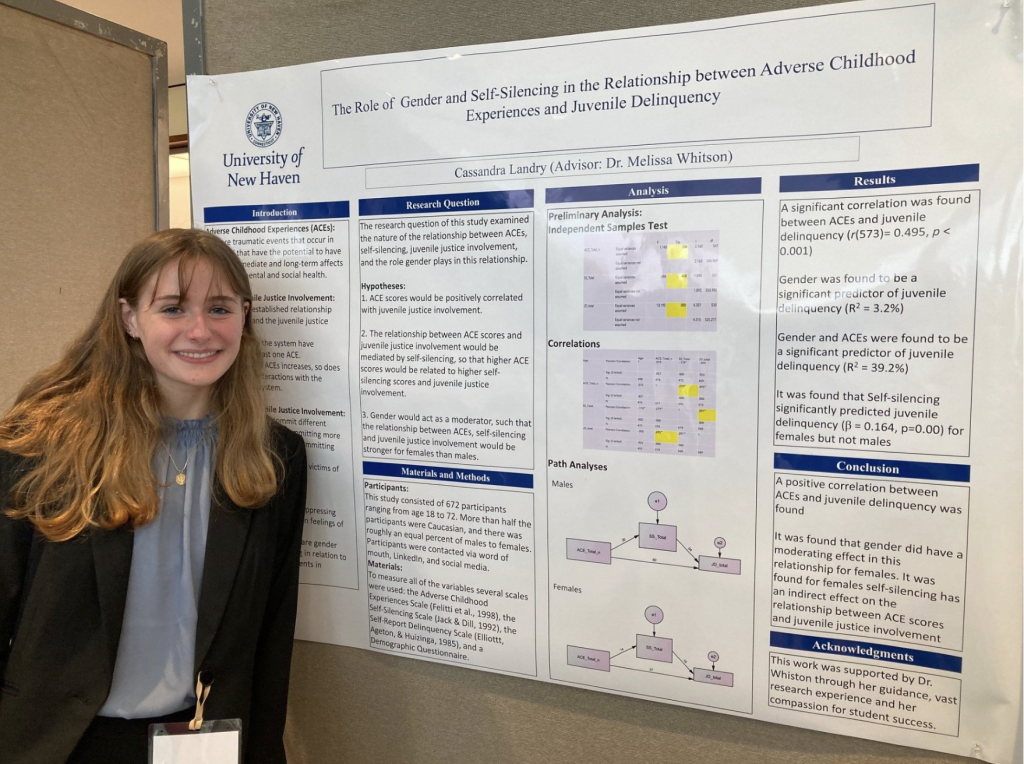

Eastern Psychological Association Presentations
Flourishing Among People with Lower Limb Amputation
Yasmeen Najjar & R. Lillianne Macias, PhD
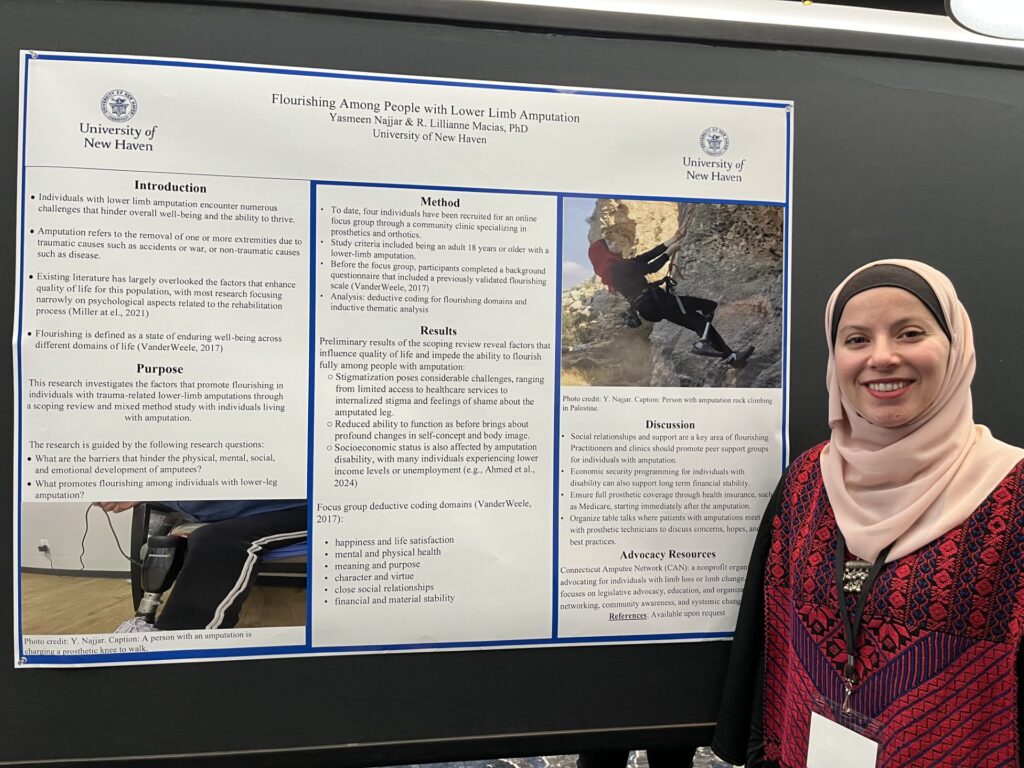
Depression as a Mediator for Adverse Childhood Experiences and Suicidal Behaviors
Kelsey Ann McDonnell & Melissa L. Whitson, PhD
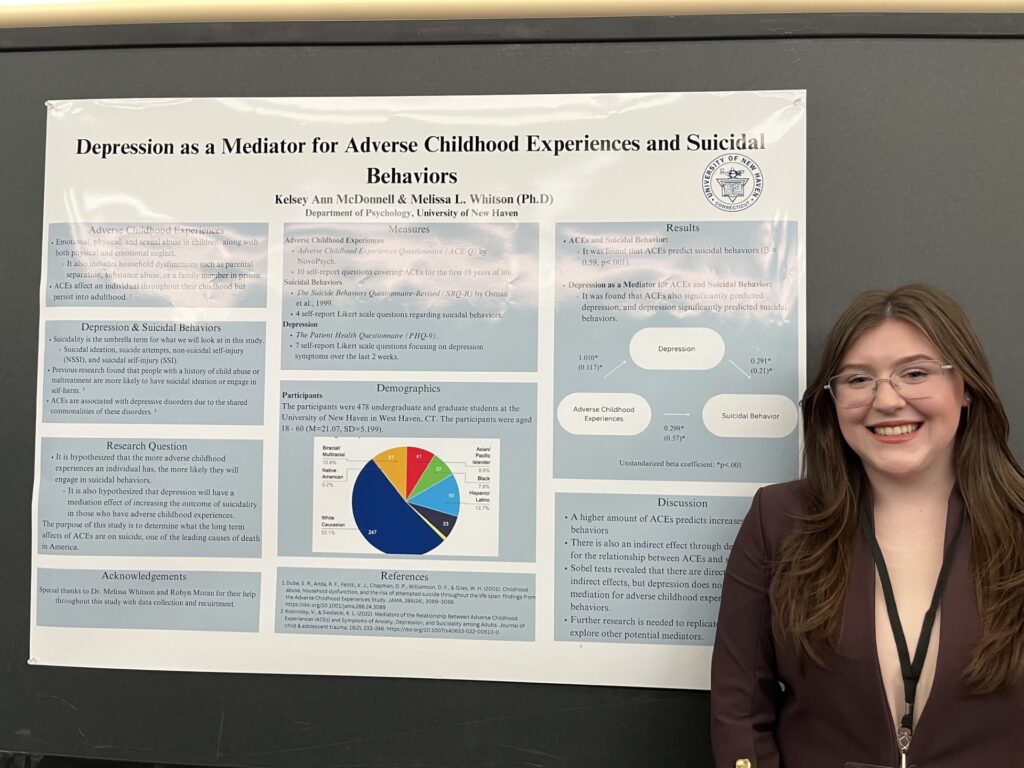
Crisis & Hotline Users’ Perceptions of Domestic Violence Advocacy Needs
Calley Lewis & R. Lillianne Macias, PhD
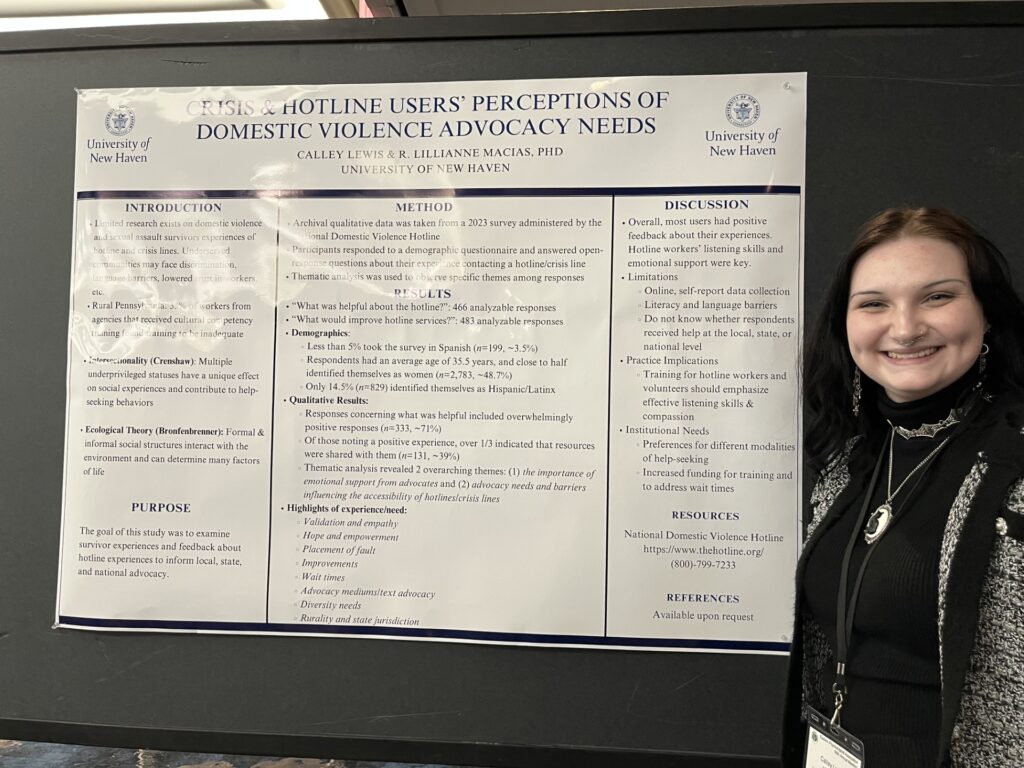
Economic Security Among Puerto Rican Women: Systemic Barriers and Community Strengths
Jasmin Garcia, BA, Vanesa Mercado Diaz, MA, R. Lillianne Macias, PhD
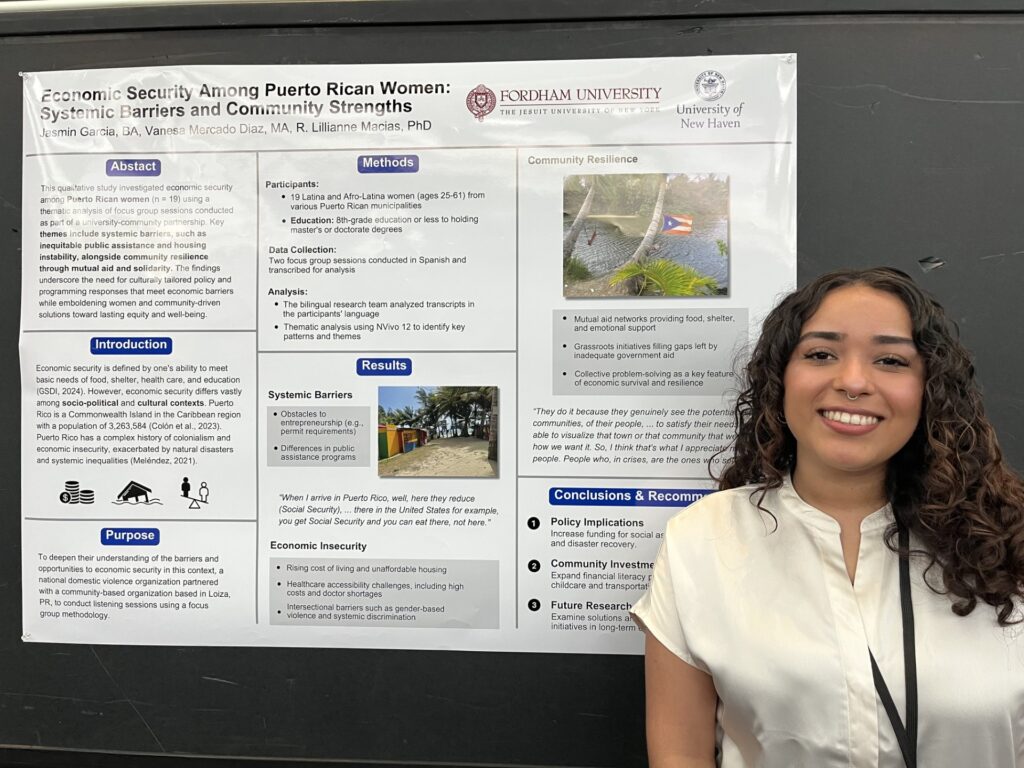
2021
ACES: Associations with Substance Use, Coping, and Mental Health Services in College Students
Patrick O’Neil
Individual and Collective Healing Through Trauma-Informed Expressive Arts Therapies
Jordyn Beschel, Krista Grajo, & Rasheeda O’Connor
LGBTQ Youth Suicidality: Trends, Risk Factors, and Impacts of the COVID-19 Pandemic
Rebekah Stafford, Olufunke Benson, & Danielle
2018
Community-Research Partnerships to Eliminate Domestic Violence in Underserved Communities
No Author Provided
Trauma: The Trauma Model
Carsin Conner, Aida Morales, Rachel Caffey, & Erinn Webb
Music Haven 101: The Benefits of an Afterschool Music Program for Low-Income, Urban Elementary School Students
No Author Provided

Dating Violence Prevention Among Emerging Adults
Marley Herard & Lillie Macias
Among young adults, past experiences with trauma can influence risk, while media exposure can reinforce unhealthy relationship attitudes (Friedlander et al., 2013). The study used a mixed-method, correlational survey design to recruit young adults from across the. United States. A deductive thematic analysis explored media exposure for individuals with healthy vs. unhealthy dating violence attitudes. Even when considering varying levels of adjustment to emerging adulthood, individuals with a history of ACEs may be at heightened risk for dating violence. Findings inform dating violence prevention on college campuses and in community practice with an emphasis on psychoeducation and guidelines for healthy media consumption.
Climate and Social Class: Enriching Collective Action for Sustainable Practices
Gauri D. Birmole and Melissa L. Whitson
Interactive Discussion: Bridging Faculty and Students’ Perspectives on Accessibility and Accommodations
Dr. Melissa Whitson and Amanda Mele
This interactive discussion focused on identifying methods that ensure commitment and collaborative action from stakeholders across ecological levels. Discussion questions included: While promoting alternative resources, how can interventions be mindful of existing inequalities and reduce the burden on the public to adapt? What are some ways
commitment can be ensured from governments and private industries? Based on the varying awareness in communities and industries, how should we approach environmental literacy? Apart from literacy, what other resources can be provided for
adapting to these changes? More focused policies and advocacy initiatives can mediate differences in communication between multiple agents of change, generate strategies for community participation, and secure accountability from crucial decision
makers.
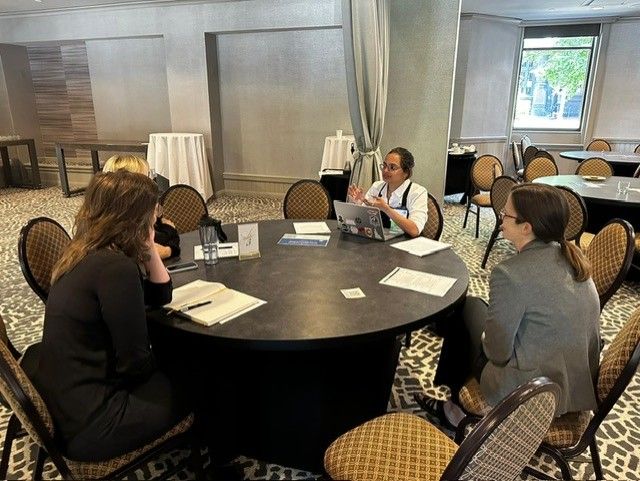
For some faculty, the need to accommodate students has drastically increased their workloads. There is a tension between structure (as part of equitable course design and student engagement) vs. logistical requirements that erect barriers to accessibility. How can we make our courses and programs cognitively challenging while also enacting accommodations and requirements that enhance accessibility (Gannon, 2023)? What types of structural changes are needed?
Complementary Interventions for Trauma and Burnout
Dr. Lillianna Macias & Juliana R. Held
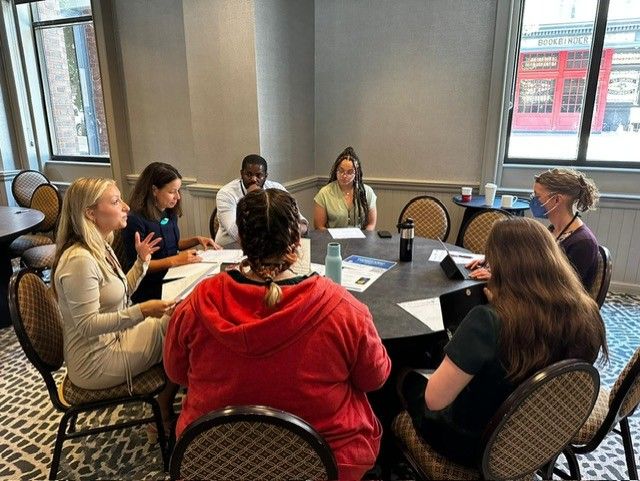
Questions posed during this table discussion included: How can mindfulness and bodywork promote healing and inform training for individuals working with trauma? How can we shift the focus on individual responsibility for self-care to group and organizational culture? Participants will be encouraged to share knowledge of culturally responsive and gender affirming practices for the safety, empowerment, inclusion, and trust of all those participating in mindfulness-based activities and body work (Duane et al., 2019)
Symposium: Culturally Responsive Gender-Based Violence Research and Prevention Practice
Dr. Lillianne Macias, Jasmin Garcia, Marley Herard, Amanda Mele
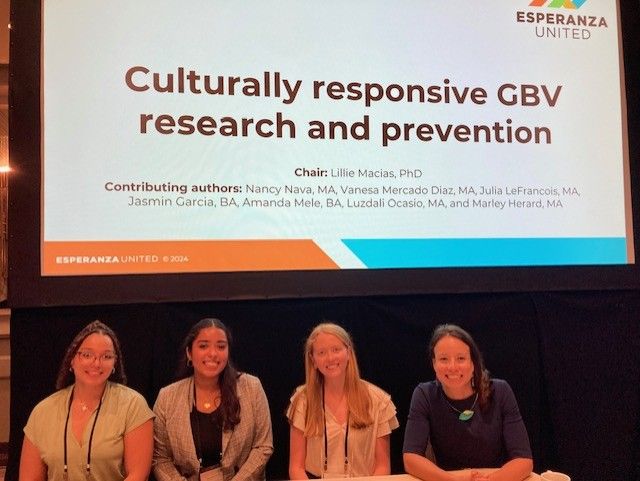
This symposium highlights trauma-informed methods of engaging Latine and other marginalized populations in research and equity-focused prevention practice. Across the four presentations, students and researchers explore considerations for culturally responsive, participatory research methods and training as part of the university community research partnership.
Interactive Discussion: Post-Traumatic Growth After Natural Disasters: the Role of Social Support
Yasmeen Najjar & Kelsey A. McDonnell
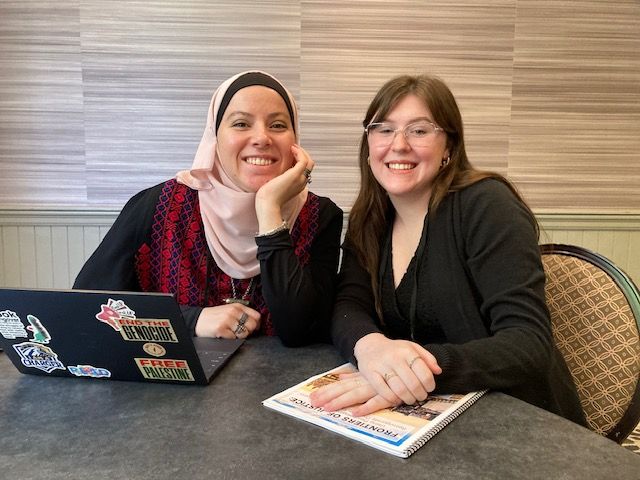
Current students and core lab members guided the following discussion questions: What is the role of the different ecological levels in enhancing social support systems for child victims of natural disasters? What kind of interventions are needed to facilitate post-traumatic growth in children?
Gender and Sexism Effects on Juror Sentencing of Gun Violence Cases
Hunter Clark & Patrick McGrady
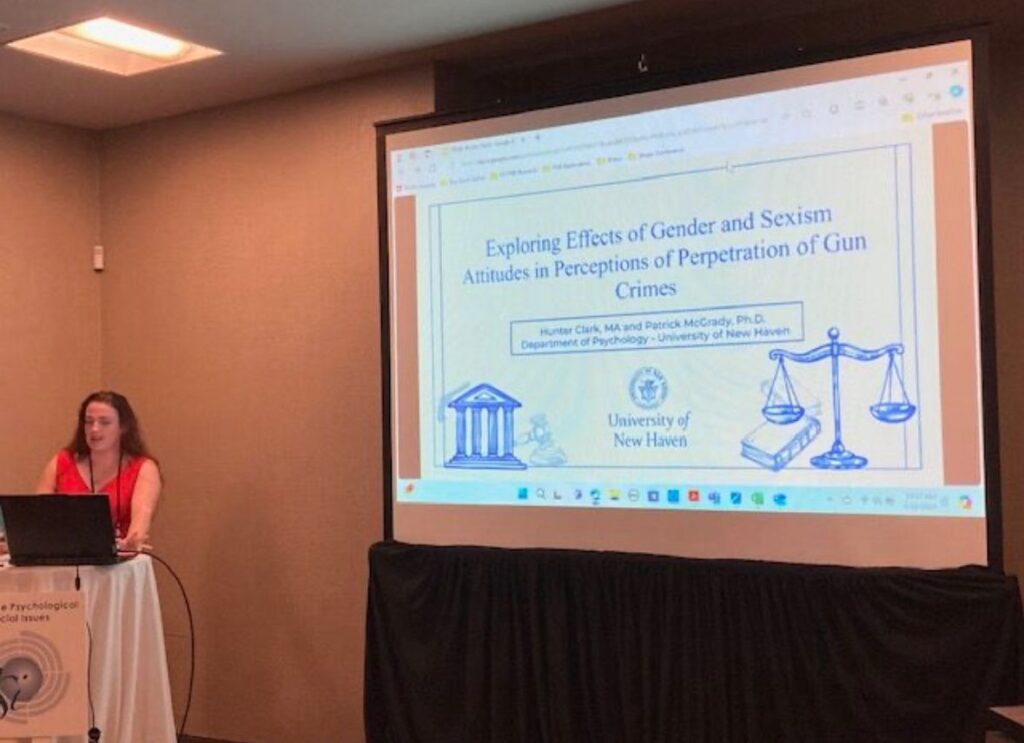
Interactive Discussion: Translating U.S.. Practices for Immigrant Youth Mental Health in Austria
Alberta Sinani and Dr. Melissa L. Whitson
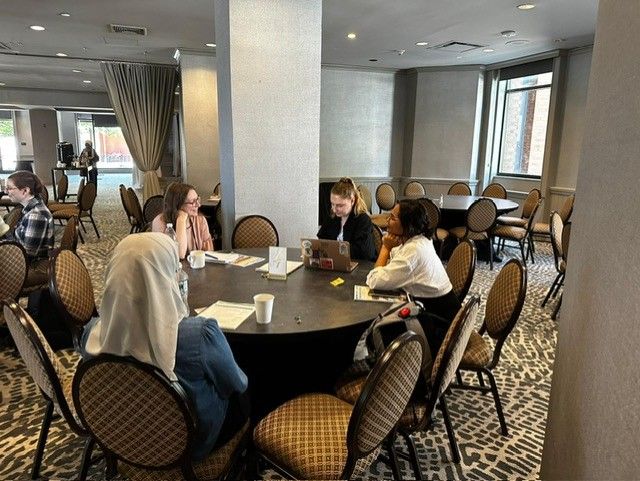
Preventing the Transmission of Adverse Childhood Experiences through Generations
Kelsey A McDonnell
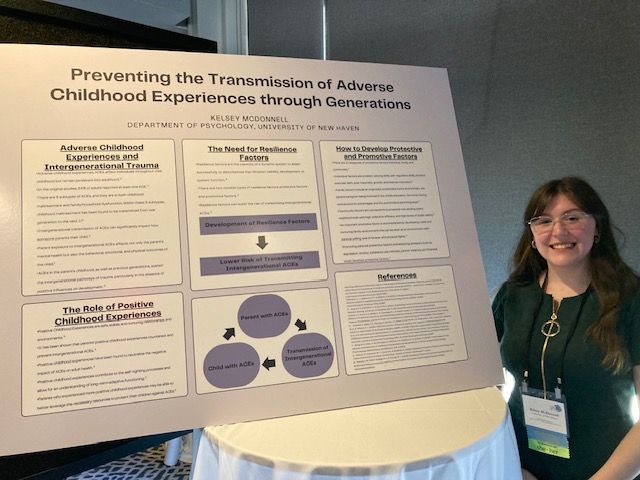
American Evaluation Conference (2022)
Leveraging Technology to Center Marginalized Communities in Evaluation Practice
Dr. Lillie Macias, Krista Grajo, Rasheeda O’Connor, Jordyn Beschel, Julia LeFrancois, & Nancy Nava
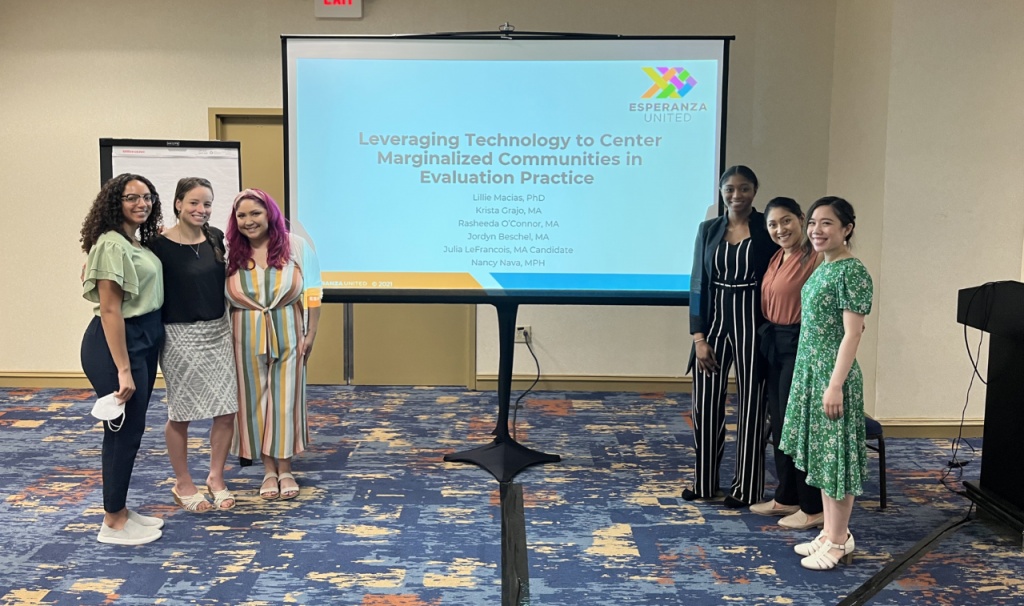
Winter Roundtable (2022)
Leveraging Infographics in Research Communication to Address Health Disparities
Rasheeda O’Connor, Krista Grajo, Jordyn Beschel, & Dr. Lillie Macias
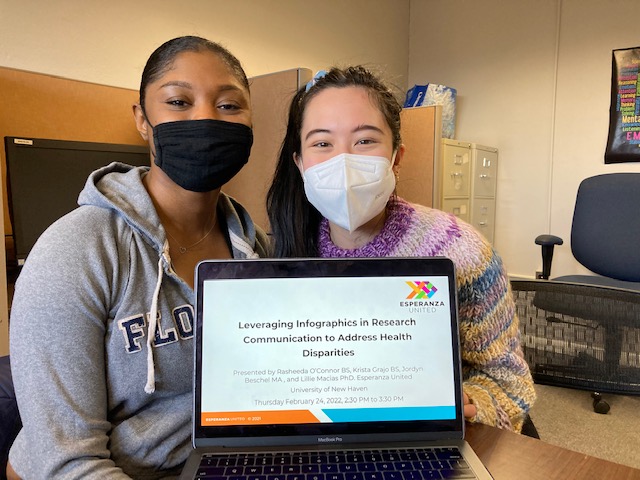
Empowering BIPOC Youth Through a Virtual Photovoice Program
Jordyn Beschel, Krista Grajo, & Dr. Lillie Macias
Storytelling Research as a Liberatory Methodology for BIPOC
Julia LeFrancois & Dr. Melissa Whitson
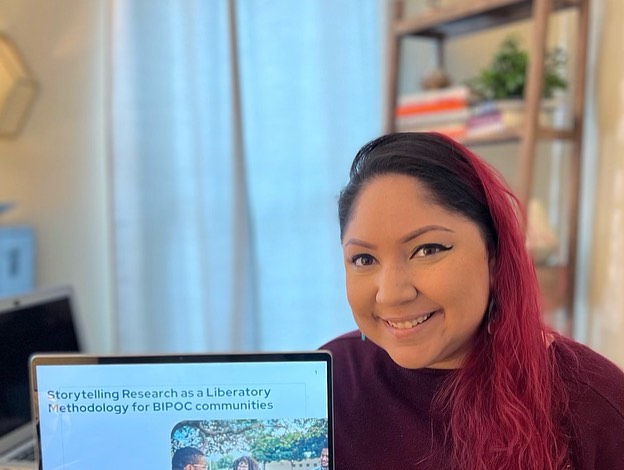
Barriers to Wellbeing and Sources of Resilience among Immigrant Communities
Krista Grajo & Azza Hussein
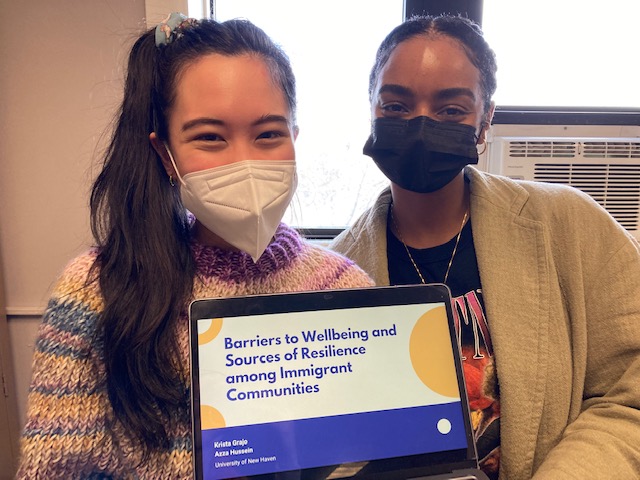
Activating Non-Clinical Micro-system Supports in Recovery
Peter van Buren
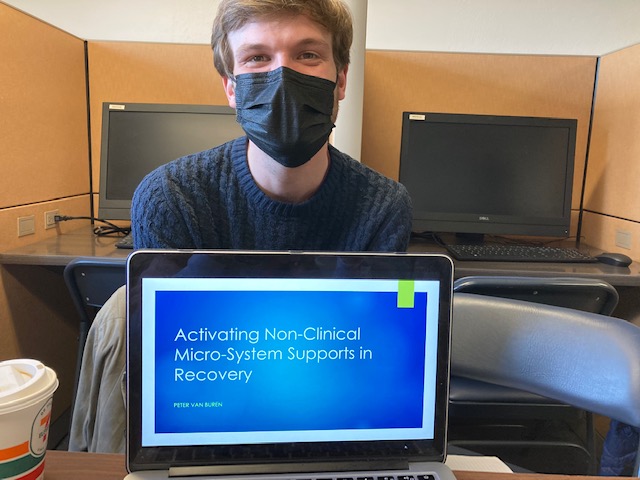
Publications
Benson, O. M., & Whitson, M. L. (2022). The protective role of sense of community and access to resources on college student stress and Covid-19-Related Daily Life Disruptions. Journal of Community Psychology. https://doi.org/10.1002/jcop.22817
Champine, R. B., Shaker, A. S., Tsitaridis, K. A., Whitson, M. L., Kaufman, J. S. (2019). Service-related barriers and facilitators in an early childhood system of care: Comparing the perspectives of parents and providers. Community Mental Health Journal, 55(6), 943-953.
Macias, R. L., Nava, N., Delgadillo, D., Beschel, J., & Kuperminc, G. (2022). Finding voice in a year of collective trauma: findings from a national photovoice project. American Journal of Community Psychology. https://doi.org/10.1002/ajcp.12630
Macias, R.L., LeBron, A., Taylor, K, & Silva, M. (2020). Después de la Tormenta: Collective trauma and community response following hurricane Maria. Journal of Community
Whitson, M.L., Robinson, S., Van Valkenburg, K., & Jackson, M. (2019). Music Haven: Evaluation of an afterschool music program serving low-income urban youth. Journal of Community Psychology, 48(2), 426-436.
Macias, R.L., Nava, N., Mora-Ozuna, C., Salamanca, N. K., Lippy, C., Rodriguez, R., & Serrata, J. (2025). Honoring the contributions of community psychologist Julia Perilla to the field of domestic violence. Women & Therapy, 48(3), 317-328.
LeFrancois, J., Macias, R. L., & Serrata, J. V. (2025). Sage research methods: Data and research literacy.
LeFrancois, J., Macias, R. L., & Serrata, J. V. (2025). How to use the community-centered evidence-based practice (CCEBP) model.
Macias, R. L., Garza, A. D., Grajo, K., Nava, N., Guzman-Jimenez, T., & Guadalupe-Diaz, X. L. (2024). Intimate partner homicide prevention among Latinas: A qualitative study of risk and protective factors. Homicide Studies, 28(3), 341-359.
Garza, A. D., Macias, R. L., Diaz, V. M., O’Connor, R., Nava, N., & Guadalupe-Diaz, X. L. (2024). Help-seeking barriers for Latinx victims of intimate partner homicide: Insight from survivors, advocates, and community practitioners. Homicide Studies, 28(3), 360-382.
Macias, R. L., Nava, N., Delgadillo, D., Beschel, J., & Kuperminc, G. (2023). Finding voice in a year of collective trauma: Case study of an online photovoice with youth. American Journal of Community Psychology, 71(1-2), 114-122.
